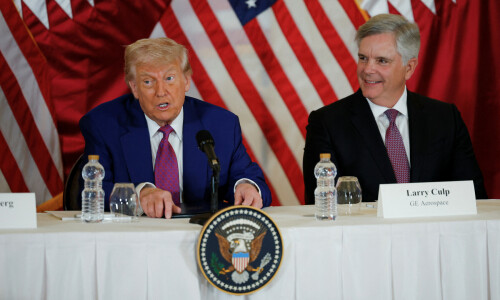WHERE are the women in Pakistan?
THE activists, the change-makers, the feminists who once filled the streets with demands for equality and reform — where are they now, when the country stands at the brink of further destabilisation? Why are they not demanding peace?
Pakistan’s women have long shaped the nation’s story. From the grassroots mobilisations during Partition — where women cared for refugees, protected their communities, and facilitated survival amid chaos — to the democratic struggles under military regimes, women have played a crucial, though often unrecognised, role in national progress. Voices like Fatima Jinnah, Hina Jilani and Asma Jahangir carved out space in political and civil society with courage and persistence.
But that space has shrunk. Civic and media platforms have increasingly drowned out women’s leadership. Activism is often treated as dissent. Feminist voices are co-opted or silenced. The powerful, plural history of women’s resistance is overwritten by narratives that see women either as passive recipients of policy or invisible altogether.
More troubling is the disconnect between women’s advocacy and formal politics. Women may occupy power, but they are constrained by party lines, patriarchy, and pressure to conform. This gap between grassroots activism and institutional leadership fractures collective power — and the potential to demand peace remains unrealised.
Where are the women?
They are not missing. They are nurses in overcrowded clinics. Teachers trying to keep classrooms open. Social workers navigating shrinking civic space. Mothers fearing for sons at the border. Daughters mourning opportunities lost to geopolitical tension. Their voices — the ones that have sustained this nation — are now sidelined.
Why?
Because in times of curated nationalism, peace becomes a dangerous word. To question war is to be seen as a traitor. To advocate for dialogue is to be cast as disloyal. Patriotism becomes a performance of silence. Women must either assimilate into the dominant narrative or face being labelled — and in Pakistan, labels don not just damage reputations, they also destroy livelihoods and futures. But this silence is costly. It extends far beyond personal consequence and spills into national collapse.
The devastating effects of war are not hypothetical — they are unfolding. Economic collapse, inflation, and disrupted supply chains hit the most vulnerable first. Infrastructure is decimated: schools become rubble, hospitals overcrowded and underequipped, homes are reduced to dust. And above all, there is a loss of humanity — lives shattered, communities displaced, dreams abandoned in the name of nationalism. This is why peace cannot be optional. It must be a rallying cry.
And it must come from women. From activists, organisers, writers, politicians. No one is stopping them — not patriarchy, not the establishment, not culture or tradition. This moment is not waiting for permission. Women in Pakistan must own it.
Peace in South Asia demands more than diplomacy — it demands courage rooted in context. In a region where identity, tradition, and sovereignty are tightly woven into every drop of water and every border crossed, women’s leadership offers a chance to rewrite not only national narratives, but regional futures. From Kashmir to Khyber, from the Ravi to the Brahmaputra, peace must reflect the lived realities of those who carry its cost. Women — long erased from these conversations — must now be at their centre.
They are watching. Waiting. Surviving. Many are exhausted. Some have internalised war as inevitable. But it is not. Women know this better than most. Global research continues to affirm: when women are included in peace processes, those agreements are more likely to succeed. Women in peacekeeping bring trust, sustainability, and grounded, community-based solutions. Yet they remain sidelined in decision-making.
One day, the soul of the nation — the women — will speak, not in whispers but in full voice. They will lead — not behind veils of silence, but at the forefront of peace, justice and memory. They will not be asked to trade truth for loyalty or to quiet their courage in the name of manufactured patriotism. But today, they remain the pulse beneath the noise. The keepers of stories. The architects of healing. The women of Pakistan have always been here.
The question is not who is giving them the space to speak — but whether they are willing to take ownership of their own agency.
The writer is a political science professor at Brevard College, a UN civil society representative, and former Missouri political appointee. Her upcoming publications include a book on reserved seats in the National Assembly and a chapter in Women, Power and Autonomy.
Published in Dawn, May 15th, 2025










































